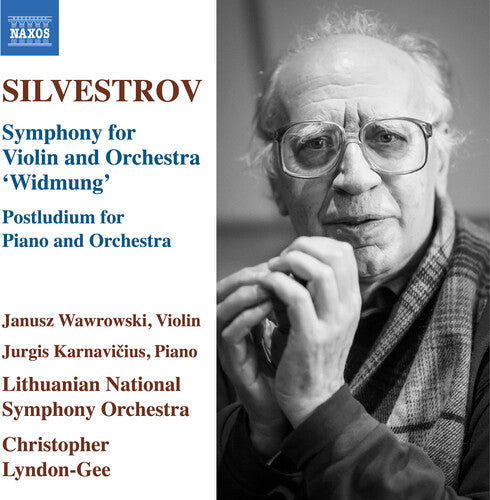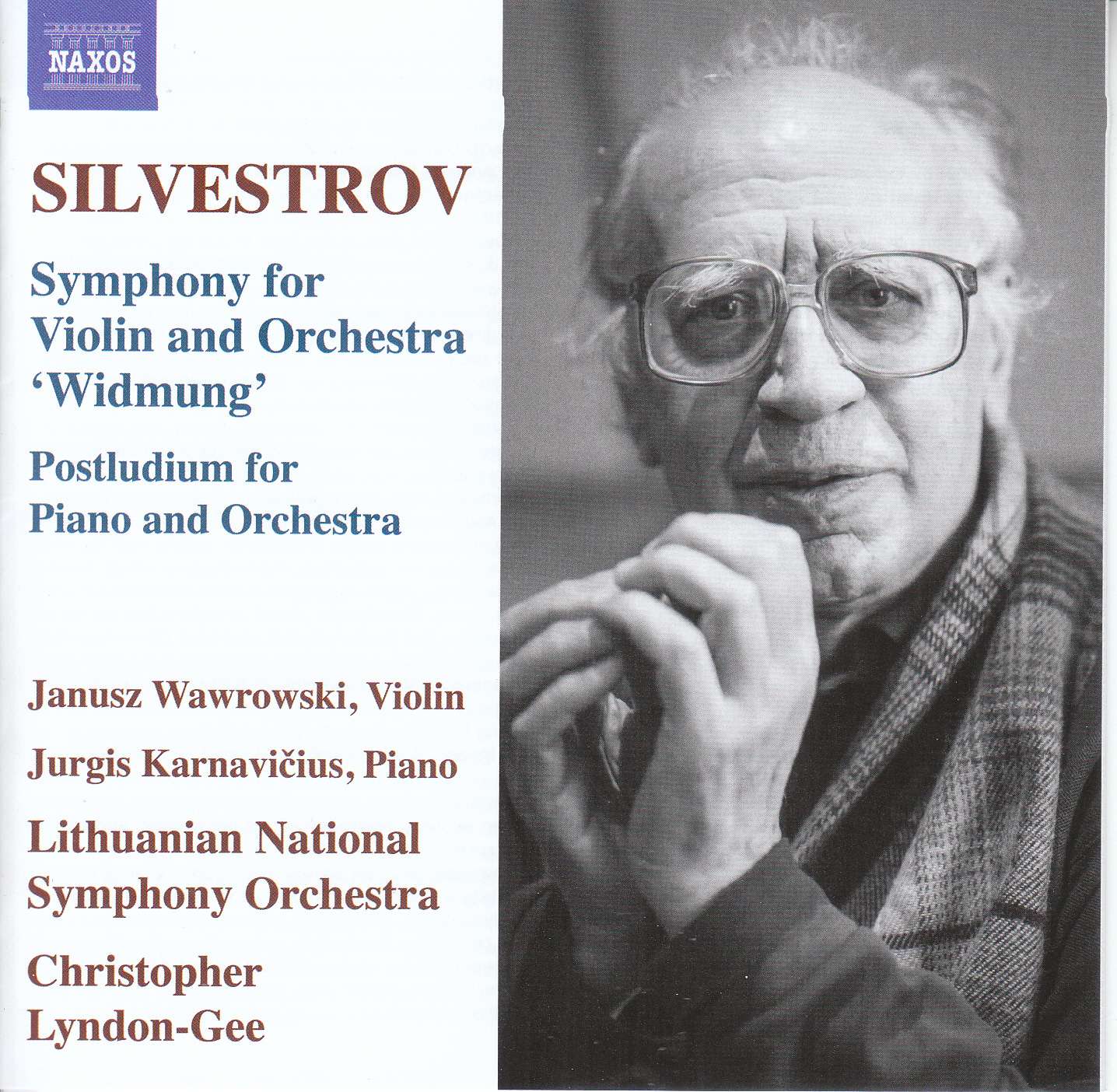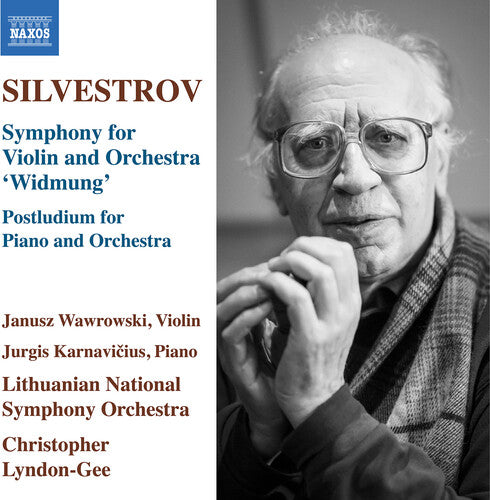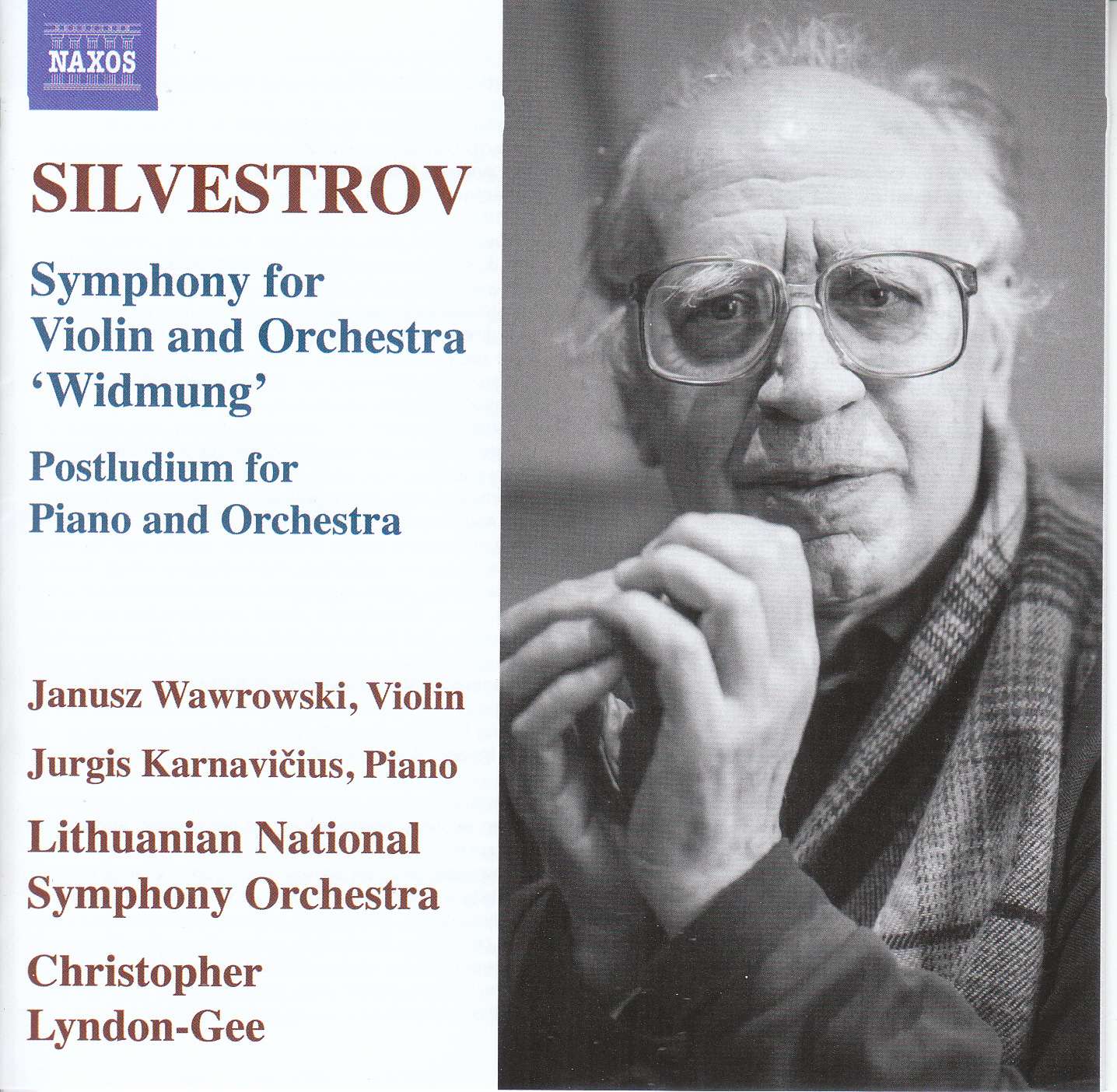Silvestrov: Symphony for Violin & Orchestra, "Widmung"
Silvestrov: Symphony for Violin & Orchestra, "Widmung"
Couldn't load pickup availability
Valentin Silvestrov is Ukraine’s leading composer and one of the most distinctive musical voices of our time. This album brings together the two superlative works of Silvestrov’s early maturity – Postludium for Piano and Orchestra and the Symphony for Violin and Orchestra ‘Widmung’. Recorded in the presence of the composer. The Lithuanian National Symphony Orchestra conducted by Christopher Lyndon-Gee can also be heard on 8.574123 in Silvestrov’s Symphony No. 7, Ode to a Nightingale and Piano Concertino.
REVIEW:
If you don't know [this] 86-year-old composer's music, a new album by conductor Christopher Lyndon-Gee and the Lithuanian National Symphony Orchestra makes a sonically satisfying place to start. It contains a pair of symphonic works that embody two recurring ideas for Silvestrov: that an end can also be a beginning, and that sweet, nostalgic music can thrive alongside concussive eruptions.
In Postludium for Piano and Orchestra, the composer essentially offers an ending, a "postlude," that becomes something brand new by mixing the avant-garde with old-school romanticism. The piece convulses in orchestral earthquakes of low brass (complete with aftershocks), but eventually gives way to delicate music that yearns for the long-ago beauty of Mozart.
The more expansive work on the album is a 44-minute symphony for violin and orchestra titled Dedication. Who's it dedicated to? Lyndon-Gee, writing in the album's booklet, treats it as an homage to the "life-force" of the human race — which encompasses not only tragedy, but also love and renewal. And yet for Silvestrov, he says, "Everything is a postlude to that which is slipping, inevitably and unceasingly, from between our fingers."
In Dedication, the violin — played with unwavering detail by Janusz Wawrowski — is not battling against the orchestra for domination, as in a typical concerto. Instead, the two protagonists complement each other, breathing as a single organism in Silvestrov's colossal exhalations of sound. Great waves of percussion crest over a spiky violin, a reminder that Silvestrov's early works from the 1960s were considered too avant-garde for Soviet-era officials.
Silvestrov has created his own sound world, charged with turbulence and bittersweet fragments of melody that can seem like quotes from other composers, but aren't. Near the end of Dedication, an elegiac theme, reminiscent of Mahler, emerges in the strings, struggling to rise ever higher through a dark cloud of roiling harmonies.
-- NPR Classical (Tom Huizenga)
Share


Product Description:
-
Release Date: May 10, 2024
-
UPC: 747313441372
-
Catalog Number: 8574413
-
Label: Naxos
-
Number of Discs: 1
-
Composer: Valentin Silvestrov
-
Orchestra/Ensemble: Lithuanian National Symphony Orchestra
-
Performer: Janusz Wawrowski, Jurgis Karnavicius, Christopher Lyndon-Gee


